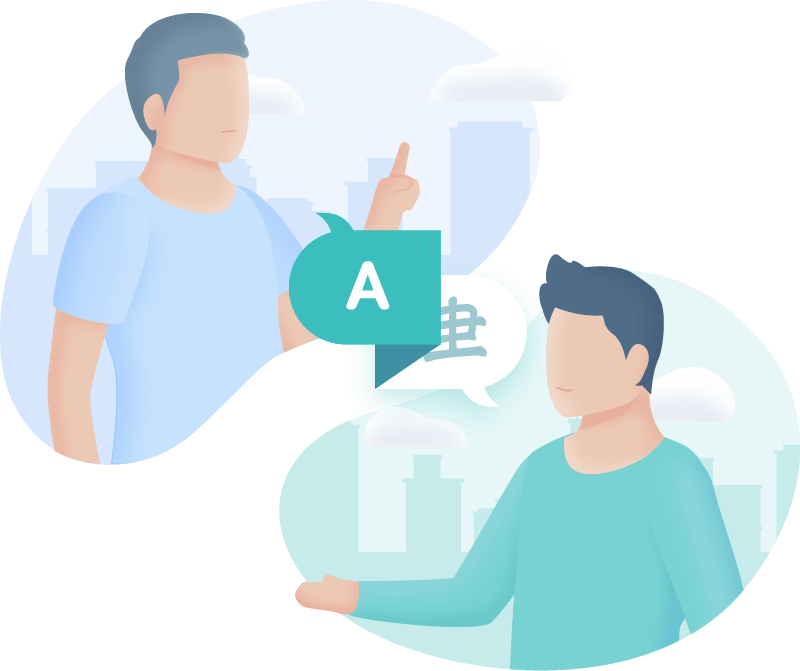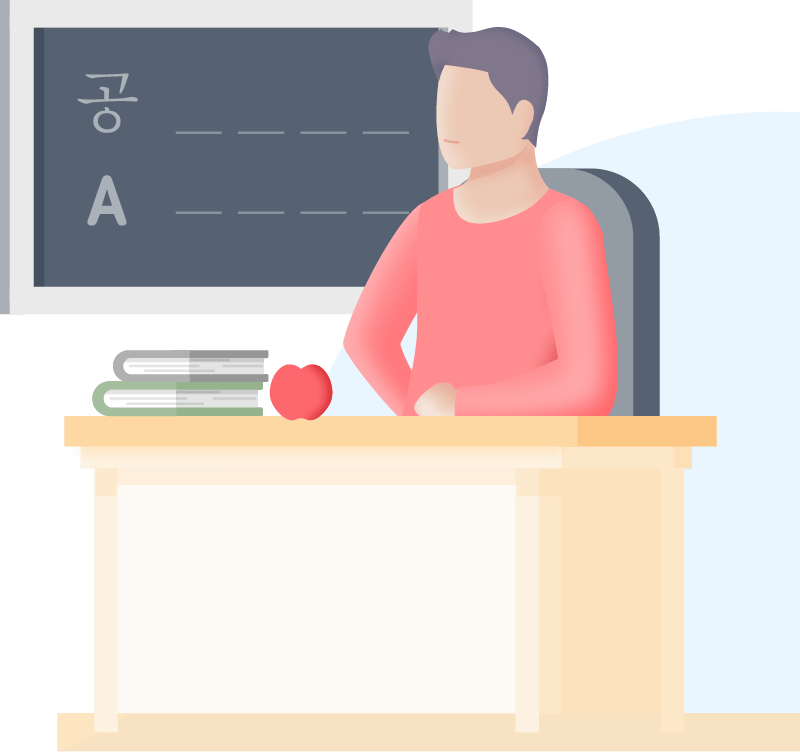GENERAL INFORMATION
You chose for an international study in a foreign country that is new to you. Great! This also comes with the expectation that you will encounter several challenges and that you are willing to tackle them head on.
In the beginning, all new experiences can be quite overwhelming, but after a while all will fall into place naturally. So, be patient!
If you are not patient, you will miss out on some great learning opportunities, and this would be a shame. So do not panic if you notice in a lesson that it does not work out right away, you do not immediately see the connection with your target group/own training, or your internship location is not right next door to your place of residence.
At PXL University, we never propose impossible things. We have a lot of experience with incoming students and know that it takes time to get used to and adjust. So, we do not like hasty decisions and find open communication very important.
This plan can help you in finding an appropriate way to reach your traineeship school if it is located near Hasselt. On this site map you can see all campuses of PXL and the different ways to reach them (bus, bike). Classes are usually on campus Vildersstraat.
CONTENT OF THIS SECTION:
- Buddy system
- Code of conduct
- Evaluation methods
- Grading
Buddy system
To make the transition into Belgium as smooth as possible, you are coupled to (at least) one PXL-buddy. This is a student of PXL-Education pre-primary, primary or secondary education.
Your buddy will share his contact information with you before you arrive in Belgium. You will have one online meet & greet during summer (July/August/September).
You can contact your buddy for all kinds of questions from basic practical arrangements to school related questions, before your arrival and during your stay in Belgium.
Upon arrival in Belgium, your buddy will show you around and help you with some administration. During your stay in Belgium, your buddy can take you to social events or just check up on you from time to time, depending on your needs.
However, you cannot rely on your buddy for financial, material, medical, … problems. For these kinds of situations, please contact the international office.

Code of conduct @PXL
Attendance
When there is a class scheduled, you are expected to be there and to be on time.
If for some reason, you cannot attend, make sure to notify your lecturer.
If you are unexpectedly late for class, knock on the door and wait in the hallway to be let in by the lecturer. Excuse yourself and make sure it does not happen again.
To address a lecturer
@PXL it is common to address your lecturer with mister of misses followed by their last name. Sometimes, a lecturer will indicate explicitly, you can use his first name to address him.
Communication by mail
Mails are expected to be formal ways to contact a lecturer. Therefore, you always use an appropriate salutation and closing.
Active participation in class
In class, active participation of students is much appreciated. This means raising your hand to signal you want to answer a question, ask question on the content during classes, make exercises, …
If this is not within your comfort zone, please talk about it with your lecturer. You can talk to your lecturer directly before or after each class or make an appointment at a different time if you would like to discuss anything concerning the course.

Evaluation methods
General information
The exam schedule for January/February is communicated at the end of November through MyTimeTable. Doublecheck with your buddy or ask your lecturer in case of doubt.
At PXL a mixture of evaluation methods is used.
The information on the exam method(s) of each course can be found in each BlackBoard course in a folder on evaluation.
Here we explain the general approach of the most common exam methods, although you might be faced with others as well.
Written exam
You come to the assigned classroom (see MyTimeTable) at least a quarter of an hour before the indicated hour (see MyTimeTable). Make sure you know where the rooms are, since during exams all rooms (also the ones that we normally do not use to teach in) will be used.
Usually, you will sit alone at a table in a classroom filled with tables and other students (taking the same or a different exam).
You set your bag in front of the classroom and you only take something to write with you to a table. In case of a digital exam, you also take out your laptop and charger. Make sure your laptop is fully charged the day before.
The time you get to finish the exam is set beforehand and can be found in the specific evaluation information in the Blackboard course of each subject.
When you have finished your exam, you hand in your paper copy or you have the supervisor of the exam check your digital submission. You sign off a signature list to confirm your attendance and you can leave the room.
Oral exam
You come to the assigned classroom (see MyTimeTable) well in advance at the indicated hour. You can find the hour on a list posted on Blackboard. Ask help of a classmate or your buddy to find the correct list.
The oral exam can have some preparation time, but this is not always the case.
During the preparation time, you can read the exam questions and take some notes.
Most of the time, there will be a randomized system to assign questions to a student, f.e. upon entering the classroom, there will be sheets of paper. You will be asked to choose one of the papers. On the back, you can find the questions for your exam.
The lecturer will listen to you while you answer the question. He will ask other related questions as well. This is no indication for the answer you gave, so do not let this throw you off your game!
Assignments
Communication on assignments (f.e. paper, reflection, blog, presentation, …) can be found in the BlackBoardcourse of the subject.
Be sure, to check and respect the given deadline.
Grading
Exams are graded in total on a mark of 20. On your learning agreement a conversion of that grade is done with a general table taking into account the different grading systems of international educational institution (f.e. universities).
In Belgium, this is the general interpretation of the grades on 20.
An excellent grade is only given in an exceptional situation. This is certainly not the norm for students.
If you get a mark between 12 and 16, you did a good job!
|
18-20 |
excellent |
|
16-17 |
very good |
|
14-15 |
good |
|
11-13 |
satisfactory |
|
10 |
just made the limit |
|
9 |
questionable – fail |
|
<9 |
unsatisfactory – fail |
School system in Belgium
In Belgium school is mandatory from the age of 5 till 18.
The mandatory school system is divided into pre-primary (2,5-5y), primary (6-12y) and secondary (13-18y) education.
In every age group, schooldays are from Monday to Friday. Each school has specific hours, but usually school starts between 8AM and 9AM and ends between 3PM and 4PM. On Wednesday, school ends around 12 ‘o clock and children will return home or join an after-school programme.
Pre-primary education is for children aged 2.5 to 5 years old. Focus is on playful learning. There is usually one main teacher giving all the lessons. All activities are in Dutch. The programme is more or less the same in all schools.
Primary refers to the age group of 6- to 12-year-olds. There is usually one main teacher giving all the lessons, although in many schools, there is a special teacher for physical education and religion. Most activities are in Dutch, some are in French -especially for older children-, since French is the second language at the schools. The programme is more or less the same in all schools.
Secondary education refers to the age group of 13- to 18-year-olds. Here, there is a teacher per specific course. There are many varying options for pupils in secondary school. The first year, they follow a more or less similar programme in all schools, with some limited choice. In higher years, pupils choose a domain they want to specialise in (f.e. economy & organisation, arts & creation, agriculture, society & well-being, sports, STEM (including f.e. science, but also construction, electricity, …), languages & culture, food & catering).
The ministry of education in Flanders (Dutch-speaking part of Belgium) defines a set of final attainment objectives for each educational level.
Every school is part of an educational umbrella organisation. There are 3 such organisations in Belgium. Each of these, translate the final attainment objectives in specific goals for their schools in a curriculum.
Every school then makes an interpretation in practice of the curriculum. Schools must be able to prove they are achieving the curriculum, but how they do this, they can choose on their own. Only the number of hours dedicated to a course subject is set.
This means, schools can choose some contents, choose the books they work with, choose the way they want to work/teach, …
An inspector will visit the school in a cycle of maximum 6 years to guarantee the quality of education.
